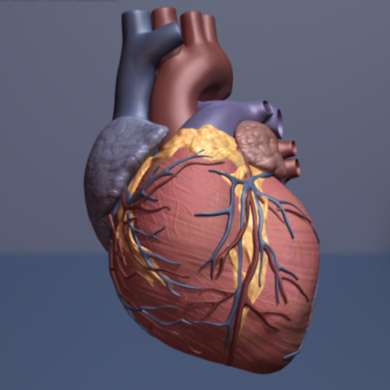Tendency to stress easily in early adulthood linked to high blood pressure in later life

A tendency to become easily stressed during early adulthood is linked to a heightened risk of developing high blood pressure in later life, suggests a large study of military conscripts, published online in the journal Heart.
Susceptibility to stress seems to account for more cases of high blood pressure among those who are overweight in their youth, the results suggest.
Greater reactivity to stress has been associated with a heightened risk of developing high blood pressure, but no research has assessed the potential impact of low stress resilience—the ability to cope well with stress—in early adulthood on the risk of high blood pressure in later life.
The researchers therefore used national disease registry data to track the health of more than 1.5 million 18 year old men, who had been conscripted into the army in Sweden between 1969 and 1997, until the end of 2012.
None of the conscripts had high blood pressure when they began their stint in the military, but each was assessed by trained psychologists for their levels of stress resilience as part of their two day medical.
This medical was compulsory for nearly all 18 year old men nationwide every year, and covered 97% of the male population between 1969 and 1997.
Stress resilience was measured by structured interview, lasting 20 to 30 minutes, and designed to find out how well the conscript would cope with the psychological demands of military service, including armed combat.
The men were quizzed about psychological adjustments made, their conflicts and successes, and responsibilities assumed at school, home, or at work, to gain a picture of an individual's emotional stability and maturity and arrive at a score of between 1 and 9 on the stress resilience scale, with 9 indicating high resilience.
Between 1969 and 2012, some 93,000 of the conscripts were diagnosed with high blood pressure. The average age of the men at the end of the monitoring period was 47, and the average age at diagnosis was 49.
A low stress resilience score at the age of 18 was associated with a heightened risk of developing high blood pressure in later life. Men in the bottom 20% of scores had a more than 40% heightened risk of the condition than those in the highest 20% of scores.
This held true even after taking account of other influential factors in their youth, such as excess weight, family history of high blood pressure, and unfavourable socioeconomic factors.
Compared with men of normal weight (BMI) and high stress resilience scores in their youth, those who achieved low scores and who had a high BMI at the age of 18 were more than three times as likely to have high blood pressure in later life.
This is an observational study so no firm conclusions can be drawn about cause and effect, but the findings prompt the researchers to suggest that poor ability to cope with stress in late adolescence may have a long term impact on susceptibility to high blood pressure.
"If confirmed, this knowledge may help inform more effective prevention interventions by addressing psychosocial risk factors and stress management across the lifespan," they conclude.
More information: Low stress resilience in late adolescence ad risk of hypertension in adulthood, DOI: 10.1136/heartjnl-2015-308597
















